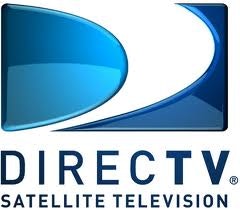
Maybe not too late but certainly too early for this broken DISH
DISH Network Corp (NASDAQ:DISH) has had a very tough time in its battle to gain market share against DirecTV (NASDAQ:DTV) and Comcast Corporation (NASDAQ:CMCSA) over the last several years. DirecTV (NASDAQ:DTV) has lucrative and popular premium package offerings such as NFL Sunday Ticket and Comcast doesn’t lose its signal every time a cloud passes over. Earnings have declined at an annual pace of 3.38% over the last five years and DISH Network Corp (NASDAQ:DISH) has managed to build a balance sheet with a debt to equity ratio of 40.97. Even though this level of debt would crush most businesses, DISH manages to cover its interest payments slightly more than five times with free cash flow.
What could turn out to be an unfortunate turn for shareholders is the release received by Sprint Nextel Corporation (NYSE:S) from SoftBank, giving Sprint Nextel Corporation (NYSE:S) permission to allow DISH Network Corp (NASDAQ:DISH) to begin due diligence to support the $25.5 billion offer to purchase 100% of Sprint Nextel Corporation (NYSE:S) that DISH Network Corp (NASDAQ:DISH) is making to compete with a $20 billion offer by Softbank to purchase 75% of Sprint. This would represent a price of more than 3.5 times book value for a business expected to lose $2.87 billion in 2013 based upon the consensus earnings estimate from the 17 analysts covering the stock.
It is hard to image anything truly beneficial to shareholders coming from an already highly leveraged business taking on an enormous amount of debt in order to pay a large premium to book value for another business that is bleeding red ink. While existing shareholders can hope for the best, I think I prefer not to take on this level of risk for what I believe is limited upside potential. DISH Network Corp (NASDAQ:DISH) just might become a good investment one day; but, that day is not today.
Scarred by battle but still standing
The two heavy weight players in providing home video content for entertainment have been DirecTV and Comcast Corporation (NASDAQ:CMCSA). Once again, the big advantage for DirecTV (NASDAQ:DTV) products has been the premium content sports packages for which it has been able to acquire exclusive distribution rights. The disadvantage is the irritating loss of signal its customers experience during even minor atmospheric disturbances. The biggest negatives Comcast Corporation (NASDAQ:CMCSA) faces related to their products and service are the poor customer service and arrogance for which it earned a well-deserved reputation prior to the introduction of satellite-based delivery options.
DirecTV (NASDAQ:DTV) currently trades at a PEG ratio of 0.85 based on 2014 consensus P/E estimate of 10.85 and projected five-year average growth of 12.7%. Considering its earnings growth rate of 30.72% over the past five years, the forward projections appear to be very reasonable. Management here has been very proficient with the allocation of shareholders’ capital as evidenced by the five-year average return on capital of 16.3%. Unfortunately, management has not been nearly so effective at building equity in the business for shareholders as the business currently has a negative equity value of $6.148 billion.
The negative equity position of the business is a major negative, but the business does generate enough cash to cover the interest payments on the debt by a multiple of 7.4. Profits have grown at an annualized pace of 15.51% over the past five years, powered higher by the 11.51% annual growth in sales during the period. If the share price simply keeps pace with the projected growth in earnings over the next five years, shareholders should expect annual returns on investment equal to 12.7% for years to come.

